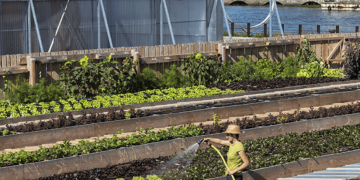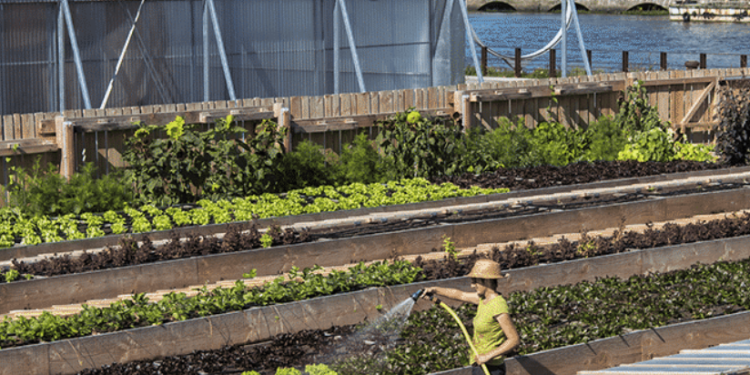Discover the story of how a former tarmac car park in the center of the docks is being transformed into a thriving urban vegetable garden. Learn how innovative technology and community engagement are changing urban agriculture, bridging the gap between urban and rural areas.
In the bustling heart of the docks, where urban hostility once reigned, a green oasis emerges – the Cantina’s vegetable garden. This pioneering initiative, led by Nantes-based gardener Olivier Durand, is redefining the concept of urban agriculture in France. Since its inception in 2016, this innovative project has restored over 1,000 m² of land, breathing life into a concrete jungle with an abundance of fresh produce.
More than 600 m² of this reclaimed area was cultivated, yielding a variety of crops. From crunchy lettuces to the iconic Chantenay carrots, green beans to spaghetti squash, and a variety of edible flowers and herbs including basil, chives and lemon balm, the garden is full of vitality and flavor. What was once a barren expanse of asphalt is now teeming with life, offering a vibrant mix of colors and textures.
In addition to its tangible rewards, the Cantine garden serves as a hub for knowledge sharing and community engagement. Visitors flock here eager to learn about the innovative growing methods used and witness first-hand the transformation of urban spaces into productive green spaces. This convergence of rural wisdom and urban curiosity highlights the growing importance of agriculture as a social and environmental imperative.
Recognizing public interest in sustainable urban agriculture, Le Voyage à Nantes took a bold step in 2022 by appointing Olga Barazer, an experienced gardener with a passion for growing healthy food. Drawing on her family’s agricultural heritage and her expertise in design and digital innovation, Olga embodies the spirit of innovation driving this revolution in urban gardening. Her presence in the garden three days a week throughout the summer not only ensures continuous care and maintenance of the crops, but also fosters meaningful connections between the citizens and the land.
Transforming urban spaces into productive gardens represents the potential for innovation and sustainability in modern agriculture. The Cantine Garden is a beacon of hope, demonstrating that through creativity, dedication and community collaboration, we can grow abundance in even the most unlikely places.































